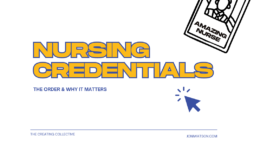This is part 20 of the Nursing Research Challenge.
The Article: Cummings, G., Midodzi, W., Wong, C., & Estabrooks, C. (2010). The contribution of hospital nursing leadership styles to 30-day patient mortality. Nursing Research, 59(5): 331-339.
Big Idea: This study examines the difference between nursing leadership styles within 90 acute care facilities in Alberta, Canada and the impact those leadership styles have on patient mortality within 30 days of admission to the facilities. We always say the leader makes a difference. In healthcare that means improved care and fewer people dying. Cummings, Midodzi, Wong, and Estabrooks actually measured that.
Survey Says!: Analyzing numerous data sets, the authors did actually show that different hospital nurse leaders – high resonant, moderate resonant, mixed, moderately dissonant, or high dissonant – can and do make a difference on patient outcomes. For reference, the resonant category encompasses the visionary, coaching, affiliative, and democratic leadership styles; the dissonant category encompasses the pacesetting and commanding leadership styles; and, mixed is neither completely one or the other. Contrary to popular belief, both the highly positive and highly negative leadership styles had positive impacts on 30-day patient mortality. However, positive nursing leadership styles, e.g. highly resonant, had the most significance on patient mortality
Quotable: “A recent systematic review to examine relationships between nursing work environment features and patient mortality showed that environmental attributes of autonomy, effective nurse-physician relationships, reasonable workload, professional development, standards of practice, and management practices were related significantly to patient mortality [references]” (p. 332).
“High-resonant leadership styles were significantly associated with 26% lower odds of mortality when compared with the mixed leadership group as reference” (p. 337).
So What?: Not only does this article help contribute knowledge to nursing leadership on patient outcomes, which is a large deficit within the nursing literature, but it provides a wealth of learning about numerous data sets and methods to combine and analyze them. Nurse leadership does contribute to patient outcomes. Choose wisely.
If this article piques your interest, find it and scour the references. Lots of nursing research gems there.





